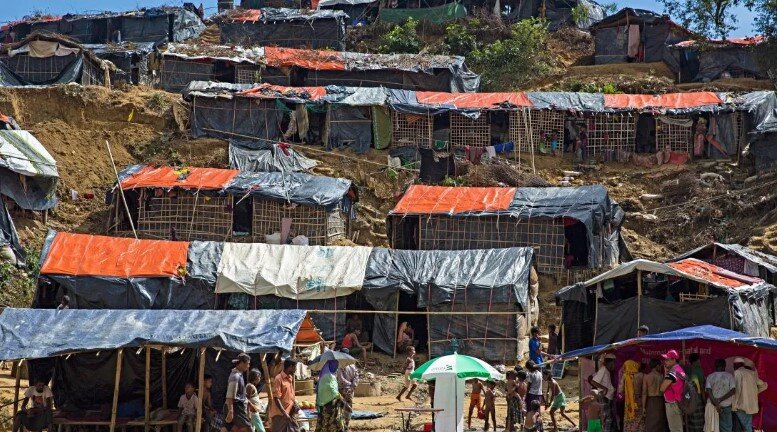By Wida Arzow Azizi | Development Coordinator, Concern Worldwide US
The surge in global crises and emergencies has caused international attention to be pulled in many directions. Many ongoing crises, though less reported, remain severe and urgent, with suffering continuing free of the public eye. In 2024, we mark the seventh year since the violent military campaign targeting the Rohingya people was launched by Myanmar's armed forces in Rakhine State causing hundreds of thousands of people to flee into neighboring Bangladesh. Concern Worldwide has been active in Bangladesh for over 50 years and swiftly responded to the refugee crisis when it erupted in 2017.
The Rohingya, the world's largest stateless ethnic minority, have faced historical suffering marked by denied citizenship and limited access to essential services, resulting in chronic poverty and marginalization. Nearly one million have taken refuge in Cox’s Bazar, one of the world’s largest refugee settlements, in a region already struggling with poverty and food insecurity. Concern continues to collaborate with hundreds of organizations and UN agencies to support Bangladesh's efforts to manage the increased capacity. Our programs aim to reduce socio-economic and environmental tensions between refugees and host communities, encompassing emergency responses, health and nutrition services, urban development, and livelihood programs.
In Cox's Bazar, safety and security remain pressing issues as seasonal floods and fires frequently devastate informal camps. The impact of climate change on Bangladesh is most severe during the monsoon season (June to October), particularly in refugee settlements. The Rohingya face recurring threats from these disasters, which constantly jeopardize their safety in their makeshift shelters. The poor conditions of the camps, coupled with seasonal flooding, heighten the risk of waterborne diseases, posing serious health concerns. Concern's preemptive actions include food and meal voucher distribution, health services, disaster risk reduction programs, and shelter rehabilitation. Flooding impedes access to clean water, sanitation, and hygiene services, leading to the spread of waterborne illnesses like cholera – making the provision of water sanitation, and hygiene (WASH) facilities crucial to addressing public health concerns. Weather-related disasters underscore the crucial role of organizations like Concern Worldwide, dedicated to providing relief to vulnerable groups amidst unprecedented disasters.
While Concern Worldwide’s immediate focus is on addressing the urgent needs of Rohingya refugees, our long-term vision is centered around sustainability and resilience. Through initiatives like livelihood support, provision of homestead gardening supplies and training, and disaster risk reduction programs, we aim to empower the Rohingya community. These efforts are designed not only to protect families but also with the aim of preserving their dignity and fostering hope for a brighter, more productive future. The Rohingya crisis faces severe funding shortages and international neglect, endangering the population’s recovery and rehabilitation. Concern's initiatives offer hope, but increased international and donor support is essential for sustainable, long-term relief for this marginalized group.
Project reports on GlobalGiving are posted directly to globalgiving.org by Project Leaders as they are completed, generally every 3-4 months. To protect the integrity of these documents, GlobalGiving does not alter them; therefore you may find some language or formatting issues.
If you donate to this project or have donated to this project, you can receive an email when this project posts a report. You can also subscribe for reports without donating.
Support this important cause by creating a personalized fundraising page.
Start a Fundraiser